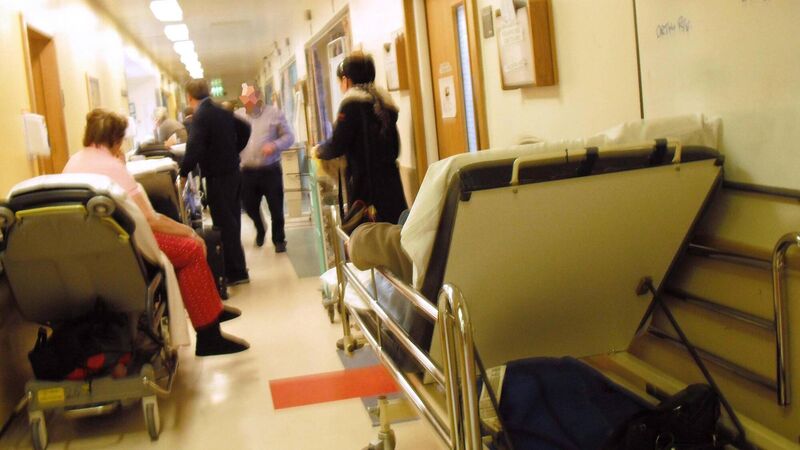Over 70% of INMO nurses and midwives in CUH have worked unpaid hours

As of March 8, 21,535 patients have been on trolleys so far this year, according to the INMO
AN Oireachtas Joint Committee on Health will hear how hospital overcrowding is impacting nurses and midwives.
The meeting is being convened at the request of the Irish Nurses and Midwives Organisation (INMO), which recently held a survey that showed over 71% of its members in Cork University Hospital had worked additional unpaid hours over the past year.
The organisation is calling on the Oireachtas to tackle overcrowding by reducing bed occupancy to 85% and to ensure that all nurse staffing is underpinned by the Framework Policy for Safe Nurse Staffing and Skill Mix.
“As of March 8, 21,535 patients have been on trolleys so far this year, a sharp increase of over 170% compared to 2021,” said INMO General Secretary Phil Ní Sheaghdha.
“Our nurses and midwives are under severe pressure; they are dealing with huge numbers of patients presenting at emergency departments coupled with inadequate staffing levels.
“State agencies such as the Department of Health, HIQA and the HSE need to step up to their responsibilities and take decisive action.
“Not only have our members been placed under enormous pressure owing to a global pandemic, but now, the endemic of consistent overcrowding is significantly impacting the mental and physical health of staff.”
The INMO’s survey found that nearly 90% of its members working in University Hospital Kerry believed current staffing levels were not appropriate for meeting patient demands, with 79% saying that they felt patient safety was often put at risk.
In University Hospital Limerick, 80% of INMO members stated they often felt worn out by the end of their workday.
The INMO will also ask the Oireachtas committee to ensure that the Government commits to the multi-annual funding of Sláintecare and that statutory agencies carry out their roles and make recommendations to the Minister for Health.
“Staff and patients deserve better than the persistent and chronic overcrowding we are seeing in Irish hospitals on a daily basis,” Ms Ní Sheaghdha said.
“Government must take note of the voices from the frontline. They are sounding the alarm. If the Government doesn't intend to fully fund and implement reforms, then our members will take action.”







 App?
App?


